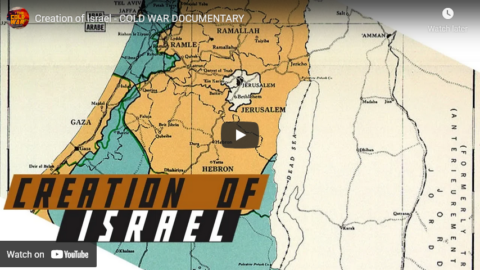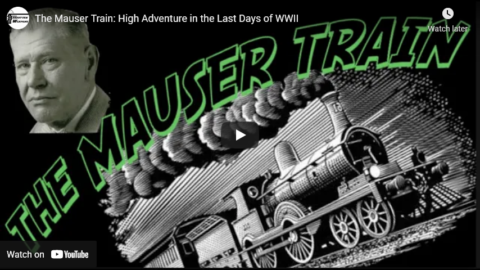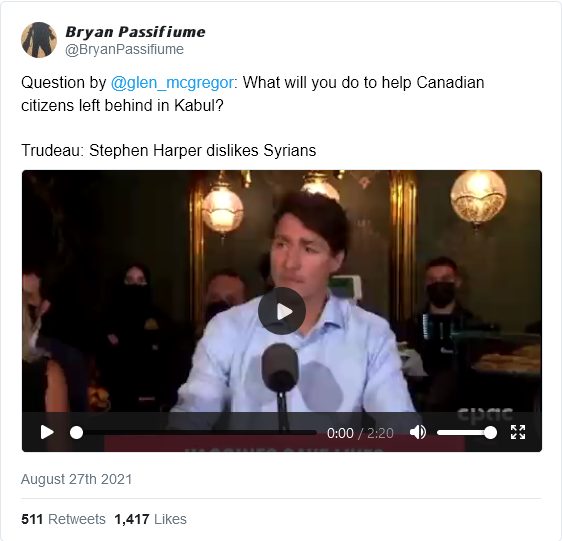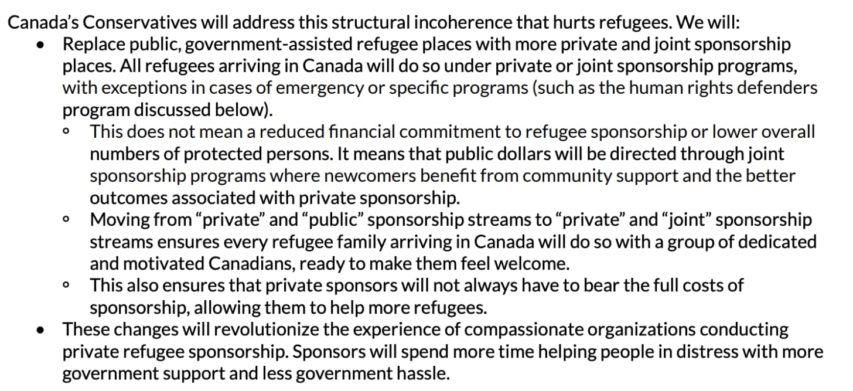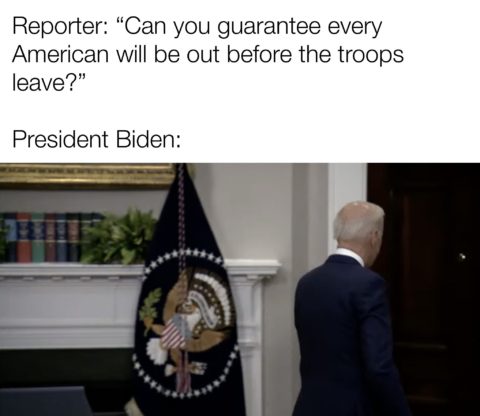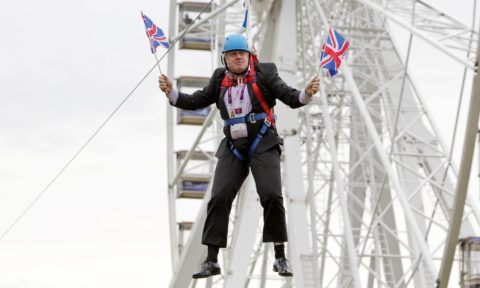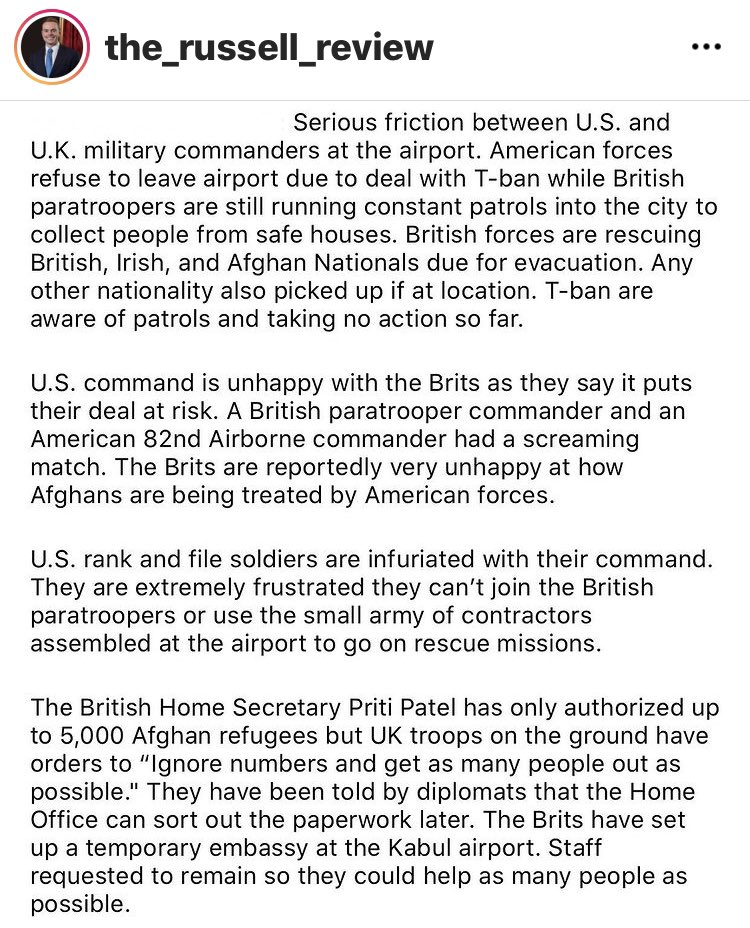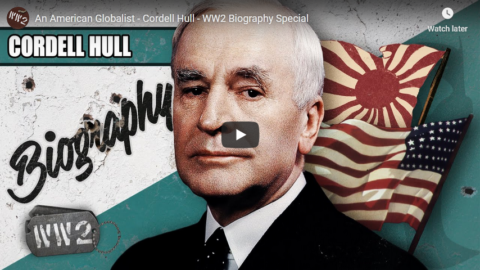The Cold War
Published 1 Jun 2019Our series on the history of the Cold War period continues with a documentary on the creation of Israel, Zionist movement, reactions and diplomatic maneuvers of other states and the build-up to first Arab-Israeli war
Consider supporting us on Patreon: https://www.patreon.com/thecoldwar
November 13, 2021
Creation of Israel
September 4, 2021
The Mauser Train: High Adventure in the Last Days of WWII
Forgotten Weapons
Published 18 May 2021http://www.patreon.com/ForgottenWeapons
https://www.floatplane.com/channel/Fo…
Cool Forgotten Weapons merch! http://shop.forgottenweapons.com
Only days ahead of the French Army in April 1945, Ott-Helmuth von Lossnitzer and about 250 Mauser engineers and technicians fled Oberndorf with the core of Mauser’s new projects. They had the drawings, components, and gages for guns like the new StG-45 assault rifle, MK214 aircraft cannon, and Volkspistol and they were headed for an impregnable series of tunnels in the Austrian Alps to carry on the war. In a story that is absolutely worthy of film adaptation they scrounged a series of locomotives, dodged P47 Thunderbolt attacks, and went careening through the Alps with about 2 dozen boxcars of the most important prototype guns in the German arsenal.
Of course, the idea of continued resistance was a complete fantasy. When it did finally arrive in Ötztal, the Mauser refugees found all the tunnels already occupied by other groups with the very same idea. So they basically made camp and waited for American forces to arrive. The train was found by a British-American CIOS (Combined Intelligence Objective Subcommittee) party, the engineers were all questioned, and the train contents packed up for shipment to the UK and US. Ott-Helmuth von Lossnitzer himself emigrated to the US as part of Operation Paperclip, where he worked for Springfield Arsenal for many years until retiring in 1968 and then living in Wisconsin until his passing in 1989.
For anyone interested in this story, I highly recommend Lossnitzer’s oral recollections compiled into book form by Leslie Field and Bas Martens – ISBN 9789081737807. It is out of print now, but you may be able to find it on the secondary market.
Much more accessible is the reprinting of the original CIOS report on Mauser published by Peter Dallhammer (whom you may recall from his Textbook of Pistol Technology and Design). This is a 360-page treasure trove of details on Mauser’s ongoing R&D in 1945, and it is available on Amazon:
https://amzn.to/2RrnNgTContact:
Forgotten Weapons
6281 N. Oracle 36270
Tucson, AZ 85740
August 31, 2021
The Line‘s She-lection Bullshit Bulletin No. 2
Yes, it’s time to publish some of the silliest political bullshit our “leaders” and their parties are slinging around in the federal “she-lection”:
Let’s start with an interesting one.
We’d recommend watching the whole clip (and we’d also note that there’s a second video clip further down in the thread; technical limitations broke one long clip into two shorter ones). But there’s two piles of dung here, and it’s worth breaking them out separately.
The first is, of course, the patented non-answer to a direct question. Glen McGregor asked Trudeau about our people in Afghanistan who were in that very moment in immediate danger. Trudeau talked about something nice he did in 2015. We understand that this is a campaign, but imagine you or someone you love is stuck Afghanistan in now, and the leader of the country is asked about you/them, and that’s the answer? Really?
The second pile of scat is more nuanced. Check out the part of the clip starting at 1:25. Trudeau says that O’Toole and the Conservatives are “promising to end the very program that brought in tens of thousands of Syrian refugees, the very program we’re using to bring in tens of thousands of Afghans fleeing to [safety] in Canada. That doesn’t make sense.”
Well, we mean … it doesn’t make sense because it’s not true.
The Tories are proposing changes to how Canada accepts refugees. Specifically, they want to shift to more heavily rely on privately sponsored refugees, citing research that shows these refugees more easily and more quickly settle into Canada. There would be both government-sponsored and private-sponsored refugees under what the CPC is calling a “joint model” model. This is broken out in the CPC’s campaign platform on page 129.
This seems … pretty reasonable? The Tories are not only promising to maintain current funding levels and numbers of accepted refugees, they just want to structure it differently. Not even very differently, at that: of the 62,000 Syrian refugees that Canada has resettled since Trudeau came to office, half were privately sponsored. The CPC platform also very specifically notes that this wouldn’t apply in “cases of emergency”, which the fall of Afghanistan clearly is. You can criticize that as policy, or even doubt they’ll follow through. Just saying they’ll cancel the program, though, is nonsense.
Of course, Trudeau isn’t the only bullshitter on the campaign trail, so RTWT for the rest of the antics that The Line felt were bullshitty enough to register this week.
August 28, 2021
The name “Afghanistan” is becoming a badge of shame for western politicians, and deservedly so
In The Line, Matt Gurney points out that while it was probably beyond the capabilities of the Canadian government to evacuate all Afghanis who had assisted Canadian efforts in that country, the actual efforts fell very far short of even “adequate”:

On the second day of the Taliban’s rule in Kabul, the front of Hamid Karzai International Airport was crowded with people trying to travel abroad, but were stopped by Taliban militants, 17 August, 2021.
Public domain image from VOA via Wikimedia Commons.
We have to cut through the fanatics on both sides and be very clear about this: the evacuation was always going to be messy. We were never going to get everyone out. But it is obvious that we did not get out as many people as we should have. It’s clear that we made major errors, including failing to work with veterans and aid groups on the ground; we did not lift bureaucratic hurdles quickly enough. We lost time dithering. That is our shameful failure.
It is not the Canadian government’s fault that our American allies decided to pull out of the conflict. Frankly, I still can’t entirely blame either the Trump or Biden administrations for that decision, although the execution of that decision has been catastrophic.
This was not a decision made in Ottawa, but in Washington, and for entirely American reasons. Further, the Liberals are not to blame for the U.S. government’s massive intelligence failure. We were caught totally flatfooted by the rapid and total collapse of the former Afghan government — what had been expected to take months took days. Canada, a member of both NATO and the Five Eyes, relies heavily on the intelligence gathered by our larger, more powerful ally. I do not fault Liberal party leader Justin Trudeau or his government for being caught unprepared.
So let’s dispense with that nonsense right away. In the big picture, there is not a whole hell of a lot Canadian governments could have done to avoid this crisis.
But we could’ve managed the crisis much better.
Over the last 10 days, we’ve had repeated reports of bottlenecks caused by over-restrictive paperwork requirements. We’ve seen other allies flying helicopters into Kabul to allow them to retrieve their people from sites around the city; Canada has helicopters and the ability to deploy them, but we didn’t follow suit.
Reports indicate that there was a gap of several days in any meaningful Canadian Armed Forces presence on the ground — and that gap set us back in terms of intelligence and planning. Canadian officials reportedly worried about the number of seatbelts on our transport planes even as other allies were loading their aircraft up with as many people as they could (we eventually began cramming evacuees into ours, as well). In several recent pieces here at The Line, Kevin Newman has described the struggle faced by those those trying to escape — people to whom we had had promised safe haven as their lives were now in peril due time they spent helping us during our missions in Afghanistan. There are numerous reports of our government telling these people to show up at gas stations and hotels — only to ghost them.
Facts beyond our control limited how effective we were ever going to be at getting people out, but we did not max out our effectiveness within those constraints. As a result, people will die who did not have to. The gap between the best-possible Canadian response and the actual Canadian response is a gap measured in lives.
I’m always happy to point the finger at Prime Minister Trudeau for his mistakes, but as Matt Gurney writes above, there was little that Trudeau could have done to avert the humanitarian disaster still unfolding around Kabul. The blame for deciding to pull out without adequate (or any) notice to allies or competent logistical and administrative planning lies with Joe Biden, as Conrad Black explains [this was written before the bomb attacks outside the airport in Kabul]:
Biden, in his address last Monday, in his midweek interview with George Stephanopoulos, and in his address on Friday, uttered a series of egregious falsehoods that were quickly exposed. He said there was no expression of discontent from America’s allies. For the first time in history, references to an American president in the British Parliament were met with shouts of “shame”. When Thomas Tugendhat, the chairman of the House of Commons Foreign Relations Committee and a retired colonel who served with distinction in Afghanistan and was decorated by the U.S. 82nd Airborne Division for combat bravery, said that it was shameful for a commander-in-chief who has not served under his own colors to mock the sacrifice of men who have, all parties in the British House agreed. No American president has been so severely or — unfortunately — deservedly insulted.
No American, consuming only mainstream media narratives, would realize that there were three times as many allied forces from assorted NATO countries in Afghanistan as there were Americans, or that they were not consulted before the Americans abruptly departed and brought the roof down on all of them. The Western alliance, as former President Trump emphasized, has its problems. Most of the members were not pulling their weight. Germany, the strongest NATO country after the United States, has almost disarmed and has effectively made itself a Russian energy satellite through the Nord Stream 2 natural gas pipeline. But they did not deserve this.
After this horrifying fiasco, where the Americans scuttled and turned tail and left their European allies and Canada to fend for themselves, the NATO members have already indicated that they are in no mood to follow this administration anywhere. No one can blame them. Biden said on Friday that the United States was not sending armored vehicles to collect its citizens and bring them to Kabul airport as the British and French were doing because, he explained, Americans were not being stopped by Taliban checkpoints. Half an hour later, the inarticulate Pentagon spokesman John Kirby squarely contradicted his commander-in-chief, and the official explanation was changed to advise Americans not to try to reach the airport because of the danger.
Biden said the Afghans wouldn’t fight so they weren’t worth the risk of American lives; but 50,000 Afghan soldiers and scores of thousands of civilians have died in this war. No Americans ha[d] died in Afghanistan in 18 months (in stark contrast to the soaring crime rates in almost all American cities). As Tugendhat told the House of Commons, it is not for the commander-in-chief of this cowardly, shameful, and disastrous flight from American national responsibilities, who has never served in his own armed forces, to disparage those who have died in allied forces for a cause that he has abandoned and doomed.
The one potentially positive aspect of this horrible debacle has been the unarguable revelation that the president is not up to his job.
August 23, 2021
Canada is extremely good at posturing on the international stage … not so good at performing
Kevin Newman on the continuing failure of the Canadian government and Canadian Armed Forces to protect and retrieve the people in Afghanistan we’ve promised to help:

On the second day of the Taliban’s rule in Kabul, the front of Hamid Karzai International Airport was crowded with people trying to travel abroad, but were stopped by Taliban militants, 17 August, 2021.
Public domain image from VOA via Wikimedia Commons.
It is impossible to piece together, or understand, why no one from Canada would come out of the military protection of the airport to speak to them over the past two days. Because there must have been a whole lot of talking happening on the safe side of the razor wire barrier separating the Afghans from the terminal. Late Friday, a Canadian C-17 carrying more soldiers and a few diplomatic and immigration staff arrived at Kabul’s military air terminal. They had a plan to work with American forces to get some of the gas station people out of the country. There seemed to be renewed confidence expressed in media interviews by Immigration Minister Marco Mendicino that, finally, things would happen.
Instead the Americans started executing rapid-retrieval missions into Kabul to get their own people out, sealed the entrance where Canada’s gas station people were waiting, and co-operation with Canadian forces seemed to disintegrate.
In the meantime, there was a game of numbers to play. With so few Canadian cases on that C-17 ready to return to a third country, the big grey plane was loaded with Afghans that other countries had successfully brought to the airport. A picture and story was fed to political reporters on the campaign trails in Canada declaring broadly that “106 Afghans have been flown out on a Canadian C17” – but National Defence would not reveal if any of those passengers had been Canadian cases.
According to the Globe and Mail‘s Stephen Chase there had been none on the only other Canadian flight of 175 to leave the airport twenty-four hours earlier, even as the government boated of another “success”. For weeks, the Prime Minister and his besieged cabinet had also been talking about 20,000 refugees coming to Canada. That too was misleading in is vagueness, according to Global News’ Mercedes Stephenson, as all but a handful are coming from outside Afghanistan and even then, it’s over many years.
There is zero evidence from multiple Afghan sources around the airport that any of those the Prime Minister boasts they’re “rescuing”, (LGTBQ2, human rights advocates, women and journalists) have come from Kabul or any part of Afghanistan in the past month.
With all that, the government continues to claim a C-17 will come and go each day. But do the math. If even a hundred daily Canadian cases make those flights, (no where near that many have so far), there is no way the vast majority of applicants will make it here before the window closes for evacuations. Canada’s commitment of men and materials in no way matches the need. So, will Immigration officials those with no hope now of rescue and admit that they won’t get out in time? That number is likely in the thousands. They need to develop a more realistic way to survive the Taliban.
The mystery in this deadly absurdity is the government’s obsession with paperwork. Even today Canadian officials on the safe side of the airport controlling who might get through were reported by eyewitnesses to be taking an “extremely strict” approach to paperwork verification. Only those granted full Canadian citizenship under the government’s Special Immigration Measure are being told they qualify to leave. That requires a lot more work to process and is perhaps less than a tenth of all the Afghans who are known to have applied and are in various stages of completing multiple forms.
Other countries have also been willing to grant refugee status to their interpreters and families, which doesn’t guarantee citizenship, but is it is a much faster way to process many more people, and it gives Afghans more choices should air rescue be impossible. In a news conference, Mendicino claimed his department’s agent in Kabul has authority to overlook the passport and biometric fingerprint requirements. But the evidence on the ground suggests he is being ignored.
August 21, 2021
In this matter Canada apes the US rather than following the great example provided by France
In The Line, Kevin Newman highlights the stark difference between what France has been doing to rescue their own citizens and Afghani civilians with ties to France with the utterly feckless Canadian government’s “effort”:

On the second day of the Taliban’s rule in Kabul, the front of Hamid Karzai International Airport was crowded with people trying to travel abroad, but were stopped by Taliban militants, 17 August, 2021.
Public domain image from VOA via Wikimedia Commons.
Ten buses screamed out of France’s embassy in Kabul early this week, past every Taliban checkpoint along the way, and according to eyewitnesses, zipped confidently through a back-entrance gate and straight onto the chaotic tarmac at Hamid Karzai International Airport. Five hundred exhausted and terrified passengers were then loaded onto a French military aircraft which quickly took off.
And then it happened again on Thursday, four buses this time, under the guard of French special forces. As with the first convoy, Paris newspapers reported the buses carried French nationals stranded in Kabul, and hundreds of Afghans and their families the French embassy had given shelter to since before the Taliban roared into and re-occupied the city. Two ballsy airlifts took them to safety at a French military base in the United Arab Emirates, where hundreds of desperate people were given a hot meal, questioned about their identities and had their documents confirmed. Most were then sent on to Paris, where they received physical and mental-health support as well as cash, clothing, and places to stay as they begin their new lives.
On those same days in Kabul, another country tried to rescue its citizens and hundreds of Afghan interpreters and their families hiding throughout the city. I’ve pieced together what happened to them from texts and video Canadian veterans have been receiving every hour from people they know in Kabul, and I am sharing them with permission. I have verified each of these facts (from the peace of Canada) with multiple sources on the ground.
There were no buses, soldiers or escorts for these terrified people. Thursday they received a short text from Immigration, Refugees and Citizenship Canada (IRCC). They were instructed (in English only) to urgently head to the airport on their own, try to find a way through multiple Taliban checkpoints searching for them, and then if they survived that kilometres-long trip, figure out a way through thousands of desperate Afghans trying to flee. They were told by IRCC to carry documents to identify themselves to a gate agent, but because those same documents would be used to identify them by the Taliban, it was up to them to decide whether to carry them. With that, IRCC wiped its hands of responsibility. No direction on where to avoid Taliban checkpoints, no specific gates to head to (there are eight), and no Canadians on site to help. In fact there hadn’t been any Canadian officials in Kabul for a week, and when a few arrived hours after that text blast, reporters said they had travelled on an American military flight because their Canadian C-17 needed servicing somewhere else.
Needless to say, no one got through the airport, so they returned to their safe houses — wondering if their last flight to freedom had left without them.
It hadn’t. It never existed. Later that night another set of blasts went out again telling Afghans to move on their own to the airport. This time they were told to shout “Canada” and hope a soldier would hear them and help them through the airport gates. Taliban guards could hear them as well there, which would ensure that the target on their backs they had been trying to hide came completely into focus.
August 20, 2021
“They were there to debate Afghanistan, a far-away country of which it turns out that we know even less than we thought”
The British government recalls Parliament to debate the situation in Afghanistan (not that there’s much to be done at this late stage, but formalities are at least being observed in a perfunctory manner):
The House of Commons was full, for the first time since last March. Members of Parliament had been brought back from their holidays, from West Country campsites and from Greek resorts, in a repatriation operation that puts the Foreign Office to shame.
They were there to debate Afghanistan, a far-away country of which it turns out that we know even less than we thought. It was only last month that Boris Johnson was assuring MPs that “there is no military path to victory for the Taliban”, although we now know that path was straight along the road to Kabul, as fast as their trucks could carry them.
Now Johnson was back to explain that things had turned out to be a bit more complicated than he thought. Or perhaps a bit simpler: we’ve gone, they’re back. Parliament was getting eight hours to discuss this, although it was too late to do very much about it. It wasn’t so much shutting the stable door after the horse had bolted as holding a long discussion about the history of equine care as the stallion in question disappeared over the horizon.
Still, the atmosphere was jolly. Many of these MPs haven’t seen each other in over a year. There was a first-day-of-term feel to things. With Parliament’s Covid restrictions lapsed, the Conservatives were wedged in together in the small, windowless chamber, barely a facemask in sight. The government’s instructions are still to wear masks in crowded places, but the Conservatives view Covid as some sort of socialist conspiracy that will go away if they ignore it. Or maybe they just feel that rules are for the little people.
Labour MPs had at least nodded to social distancing, sitting about 18 inches apart from each other. This is, admittedly, easier when there aren’t very many of you. The opposition benches were a sea of masks. Only the Democratic Unionists, who like the Tories see illness as a sign of moral failure, were a lone island of uncovered faces.
Johnson’s statement was, as ever, a masterpiece of bare adequacy. It eloquently just about dealt with the matter in question, magisterially pretty much covering the bases. The speechwriters, one sensed, must have been working on the words late into the previous afternoon. They had gone through as many as one draft as they tried to come up with something that, if it didn’t deal with every complex nuance of the Afghan tragedy, at least asked the question that Johnson lives by: “Will this do?”
The situation in Afghanistan was a “concern”, the prime minister explained, with what might, in another context, have been a brilliantly comic understatement. Over the past 20 years, the British had worked for a better future for the people of Afghanistan. “Some of this progress,” the prime minister said, “is fragile”, which is certainly one way of putting it.
What had gone wrong with our intelligence services, several people asked, that they had so comprehensively failed to see this coming? Be fair, replied Johnson, even the Taliban had been surprised by the speed of their own advance.
On the US Naval Institute Blog, CDRSalamander notes the only speech in the House of Commons during that debate that grabbed and held the attention of the entire body:
Let’s back away from the problem at hand a bit … and then back up further. I mentioned it earlier, but let’s bring it up again; national humiliation. There are different aspects of this growing humiliation that are already manifesting itself, the first of which is how others look at us.
Let’s start with our closest friend and take a moment to listen to a speech earlier today in the British House of Commons by Tom Tugendhat, MP.
The mission in Afghanistan wasn’t a British mission, it was a Nato mission. … And so it is with great sadness that I now criticise one of them. … To see their commander-in-chief call into question the courage of men I fought with — to claim that they ran. It is shameful. … this is a harsh lesson for all of us and if we are not careful it could be a very, very difficult lesson for our allies. … to make sure we are not dependent on a single ally, on the decision of a single leader, but that we can work together with Japan and Australia, with France and Germany, with partners large and small, and make sure we hold the line together.
That is our closest friend outlining a loss of confidence. That is just one datapoint from a friend, but it is safe to say that it is probably somewhere in the center of opinion.
What are those nations who are not our friends thinking? I don’t think I need to spend all that much time on discussing how emboldened they are. It is self-evident to anyone who reads USNIBlog.
On the ground, troops of 2nd Battalion, The Parachute Regiment are actively involved in escorting British and Afghani civilians from safe houses to Kabul airport for evacuation:
At least one NATO country hasn’t forgotten the civilians who have been left behind during the precipitate withdrawal by US troops.
July 2, 2021
Japan’s Institutionalization of Rape – WAH 037 – June 1942, Pt. 2
World War Two
Published 1 Jul 2021During the occupation of South-East Asia, Japan builds a large system of institutionalised rape to “keep their soldiers happy”. Meanwhile, Allied refugees from Burma find a safe haven in India, but for some, hardship continues.
(more…)
May 14, 2021
100,000 Dead British Subjects in Burma – WAH 034 – May 1942, Pt. 1
World War Two
Published 13 May 2021A large number of European and asian inhabitants of South-East Asia are locked up in Japanese prison camps, while in Burma, a big refugee crisis claims the lives of thousands. In Auschwitz-Birkenau and Sobibor, gassing Jews on an immense scale begins.
(more…)
May 8, 2021
QotD: That time the global elites were against diversity
There was simply no debate back then [in the aftermath of the Great War] that a mass influx of European refugees to Africa would have been a conquest, not a “humanitarian crisis” that Africans, with their ample space and nutrient-rich soil, had some kind of responsibility to sit back and accept. And to be clear, many of the European refugees who would have trekked across Sörgel’s newly reclaimed land were genuinely in need. They were impoverished, homeless, destitute. And a lot of them were fleeing political violence. Those folks were as poor, wretched, and persecuted as any Honduran is today. But in fully rejecting Atlantropa as a goal to be pursued, the international community took the position that “it sucks that you’re impoverished and mistreated in your home country, but it ain’t Africa’s problem. Stay where you are.”
See, in those days, the elites believed in keeping people in their own damn land. Hard as that might be to fathom now, that used to be a mantra of the progressive internationalists. There was a die-hard belief that the key to world peace was the separation of people, the segregation of populations by race, religion, and ethnicity. That was the entire point of the Greek/Turkish population exchange of 1923, overseen by the League in the name of keeping Greek Christians and Turkish Muslims separated for the sake of peace. As UNC Chapel Hill history professor Sarah Shields wrote in her 2016 essay in the Journal of the History of International Law, the prevailing belief at that time was that “Muslims and non-Muslims could not live together peacefully, and modernity required rejecting a diverse past in favor of a nation-state along European (unmixed) lines.”
Separation was the future, diversity was the past. Damn near 1.6 million Greeks and Turks were sent from the land of their birth to the land where they could live with those of a similar faith. Many of the other population transfers and redrawn boundaries that followed World War I were based on that same concept of giving people their “own” homeland based on characteristics like religion or ethnicity. It was simply taken as fact back then that nations function better with some level of homogeneity. That was canon back then. By the time the U.N. came around, that notion was still very much a guiding principle, as the internationalists realized that a vision of a multireligious, multiethnic Palestine was unrealistic and unattainable. And the Jews and the Arabs realized that too, which is why they started slaughtering each other, because they couldn’t bear to live in a partitioned state. Being separate but equal was not enough. They wanted to be separate and separated.
David Cole, “When Refugees Were Conquerors”, Taki’s Magazine, 2018-10-29.
April 20, 2021
QotD: The Atlantropa project
Ever heard of Atlantropa? Probably not. It was a nutty scheme hatched by a nutty guy, and it never had even the remotest chance of ever coming to pass. In the 1920s, Europe was suffering from a myriad of post–World War I problems. There was a refugee crisis, the result of the shifting borders and population transfers that occurred at the war’s end. There was an energy crisis, and a serious shortage of natural resources. And, of course, there was the economic depression. Several years before a madly gesticulating Austrian with a wacky mustache would rise to power with his own solution to the continent’s ills, a plucky architect from Bavaria named Herman Sörgel proposed a different one: Drain the Mediterranean! Dam the Med and partially drain it, in order to form a contiguous body of land between Europe and Africa. A new continent that would be called Atlantropa. To Sörgel, this would cure Europe of all that ailed her. The dammed Mediterranean would create hydroelectric power plants to relight Europe’s recently dimmed lamps, and the elimination of pesky ocean crossings would allow millions of European refugees to stream into Africa, where they would take their rightful place as lord and master. Better still, this newly conquered African land would be ripe with fertile soil, minerals, and a plethora of natural resources for the taking.
Oh, Herman Sörgel, you pie-in-the-sky dreamer! You were the Elon Musk of your day (but slightly more grounded). The idea never took off, not just because of the fact that it was batshit insane, but also because, at that time, the left’s intellectual elite — the League of Nations crowd, the “forward-thinkers” — understood that you don’t cure one nation or one continent’s refugee problem by sending all of the huddled, wretched refuse to another people’s nation or continent. Back then, the left understood that this would pose serious problems for the host nation or continent. And the left was right. Atlantropa would have been a nightmare for native Africans, and eventually, there would have been a Rhodesia- or South Africa-style reckoning.
In the 1920s, if anyone had suggested that the specter of millions of European refugees streaming into Africa did not constitute an invasion, that person would have been dismissed as a lunatic, because of course it would have been an invasion. Those in favor of Atlantropa, and those against it, all got that point. The European refugees would not have been content to live like Africans, or to live under African rule. Europe’s refugee crisis would have become Africa’s domination crisis. So to the liberal elites, the best solution was to tell the refugees to stay put.
David Cole, “When Refugees Were Conquerors”, Taki’s Magazine, 2018-10-29.
November 6, 2020
An American Globalist – Cordell Hull – WW2 Biography Special
World War Two
Published 5 Nov 2020Cordell Hull is the face of American diplomacy in 1941 as it navigates the precarious road to war against Imperial Japan.
Join us on Patreon: https://www.patreon.com/TimeGhostHistory
Or join The TimeGhost Army directly at: https://timeghost.tvFollow WW2 day by day on Instagram @ww2_day_by_day – https://www.instagram.com/ww2_day_by_day
Between 2 Wars: https://www.youtube.com/playlist?list…
Source list: http://bit.ly/WW2sourcesHosted by: Indy Neidell
Written by: Francis van Berkel and James Newman
Director: Astrid Deinhard
Producers: Astrid Deinhard and Spartacus Olsson
Executive Producers: Astrid Deinhard, Indy Neidell, Spartacus Olsson, Bodo Rittenauer
Creative Producer: Maria Kyhle
Post-Production Director: Wieke Kapteijns
Research by: James Newman
Edited by: Miki Cackowski
Sound design: Marek Kamiński
Map animations: Eastory (https://www.youtube.com/c/eastory)Colorizations by:
Norman Stewart – https://oldtimesincolor.blogspot.com/
Mikolaj Uchman
Spartacus OlssonSources:
Naval History & Heritage Command
http://maps.bpl.org
FDR Presidential Library & Museum
Picture of MS St. Louis in Hamburg, United States Holocaust Memorial Museum, courtesy of Herbert and Vera Karliner
from the Noun Project: Skull by Muhamad Ulum, Handshake by priyanka, Pickaxe by Luke Anthony Firth, oil barrel by BomSymbolsSoundtracks from the Epidemic Sound:
Howard Harper-Barnes – “London”
Johannes Bornlof – “The Inspector 4”
Farell Wooten – “Blunt Object”
Philip Ayers – “Trapped in a Maze”
Johannes Bornlof – “Deviation In Time”Archive by Screenocean/Reuters https://www.screenocean.com.
A TimeGhost chronological documentary produced by OnLion Entertainment GmbH.
August 23, 2020
The right of asylum
Tim Worstall is writing here about the situation in the United Kingdom, with would-be asylum claimants risking their lives to cross the English Channel so they can legally claim asylum in Britain, but exactly the same situation should apply with claimants entering Canada from the United States:
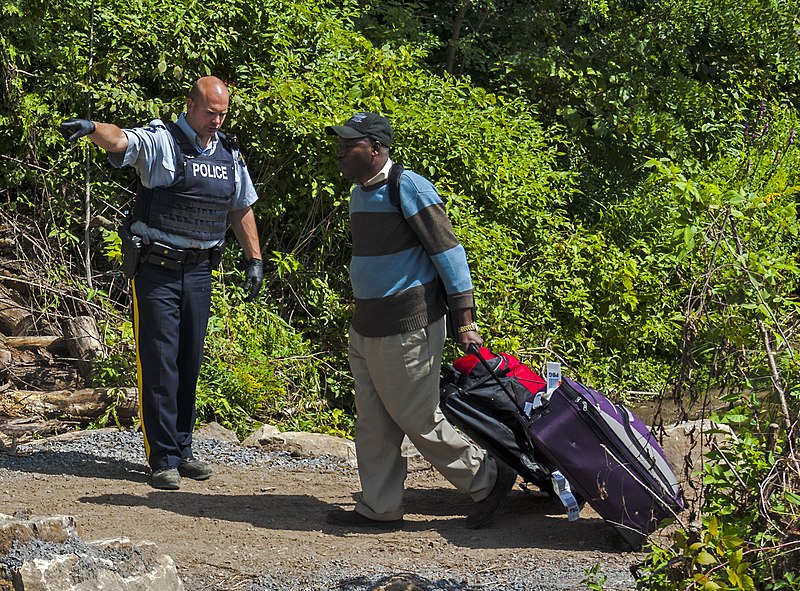
An asylum seeker, crossing the US-Canadian border illegally from the end of Roxham Road in Champlain, NY, is directed to the nearby processing center by a Mountie on 14 August, 2017.
Photo by Daniel Case via Wikimedia Commons.
Everyone at even risk – let alone reality – of substantial discrimination in their home country has the right, the right, to asylum. This is one of those international things that we should indeed agree with too. Few of us have anything but contempt for those who wouldn’t let Holocaust fleeing Jews (and or gypsies, gays, whatever, it’s just that we have substantial documented evidence about Jews who were turned away) tarnish their national doormats. Few of us think those who abused such limitations are anything but heroes. I even know of one monk who married Jewesses multiple times to bring them out by train. Umm, married multiple people, not one many times. People working within the too restrictive rules even gave us one of the finest moments of TV ever.
So, asylum, good thing.
And here’s the next thing. That right is restricted. To claiming it in the first safe place you get to. This has some oddities, if you leave Sudan by plane and step off at Heathrow then the UK is where you can – righteously – claim asylum. If you come by land then you have passed through many safe places before reaching the UK. You don’t have the right to asylum in the UK and, to be strict about it, don’t even have the right to apply.
So, people drowning in the Channel because they have to make their asylum application once in the UK? This could be true of those who are being oppressed in France. It’s not true of anyone not being oppressed in France. So there is not that need to take the open boat the 26 miles.
Sure, there’s the desire, we all understand that. But that’s a desire, not a right to asylum.
Here in Canada, we had this arrangement with the American government under the Canada-United States Safe Third Country Agreement, which our Federal Court struck down last month — incorrectly, in my opinion — as being in violation of section 7 of the Canadian Charter of Rights and Freedoms. The court allowed six months for the federal government to act, but as we all know, the federal government is unlikely to do anything as politically radioactive as passing legislation that could — and would — be seen as anti-refugee.
July 16, 2020
Canada should welcome immigrants from Hong Kong with open arms
The PRC communist government is clearly set on extinguishing the unique status of Hong Kong within China and a lot of Hong Kong residents are considering getting out before the gloves come off. Canada should join Britain and Australia in offering a safe refuge, regardless of the attitude of Beijing. Sadly, this probably won’t happen, as Justin Trudeau has demonstrated that he’s willing to kow-tow whenever his paymasters demand:
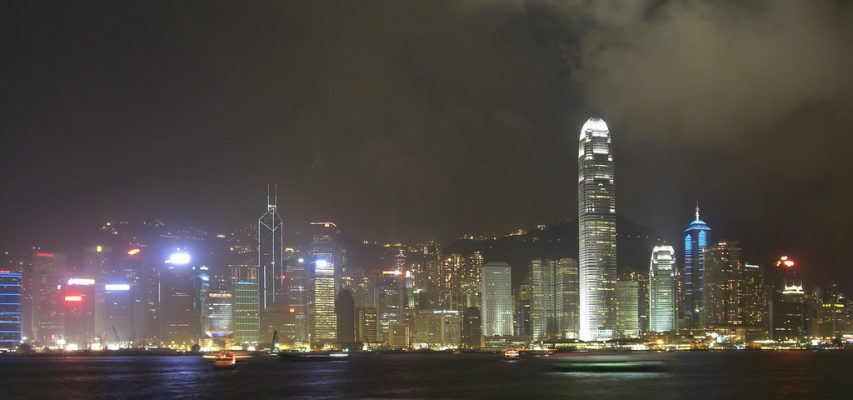
“Hong Kong night Panorama” by Andos_pics is licensed under CC BY-NC-SA 2.0
Britain has taken the lead by announcing that Hongkongers holding a British National Overseas (BNO) Passport will be allowed to live and work in the UK for five years, after which they can apply for settled status, and, one year later, citizenship. This could mean that almost three million people will be able to relocate to Britain if they so choose. In response to earlier British overtures along these lines, China made clear in no uncertain terms that Hong Kong is their concern, and that the UK should mind its own business, with China’s foreign ministry spokesman Zhao Lijian saying that the “UK has no right to lecture or interfere in China’s internal affairs …”.
However, a BNO Passport is only available to Hong Kong residents born before the 1997 transfer of the city back to Chinese control, which leaves around 4.5 million of the city’s residents — including many of the younger generation born after the handover occurred — unable to access that option.
This is why this sort of idea must be expanded on more broadly by all liberal democracies, who should consider granting special dispensations allowing Hong Kong residents who wish to emigrate to do so. The United States is considering following Britain’s example, and Australia has opened the door to citizenship for any Hongkongers with work or student visas. Hopefully, they are just the first of many.
It wouldn’t be the first time liberal democracies have taken in a large influx of exiles from specific countries.
Consider the influx of refugees which started with the Boat People, who originally were mostly South Vietnamese fleeing after the U.S. pulled out of the war and their country fell to the communist north. They, and many more from other southeast Asian countries who fled their homes in the 1970s and 80s, many ending up in Western nations. The United States took in the majority, with Canada, Australia, and a few others accepting large numbers as well.
There are some major differences however when it comes to opening our doors to residents of Hong Kong who wish to leave the increasingly oppressive rule from Beijing. Unlike many who flee war-torn or poverty-stricken nations searching for a better life, Hongkongers are among the most educated and wealthy people on the planet. Most important though, many of them love freedom, and have grown up in a society where many of the things we claim to value — rule of law, personal liberty, freedom of conscience, free speech, and a free market — are (or, at least, were) paramount.
Accepting Hongkongers into our countries would be good for us. It seems that in the last few decades, liberal democracies have been growing complacent about our hard-won freedoms. We have forgotten or ignored history, and seem not to realize that the foundations on which our freedoms are built need constant maintenance and defense.

